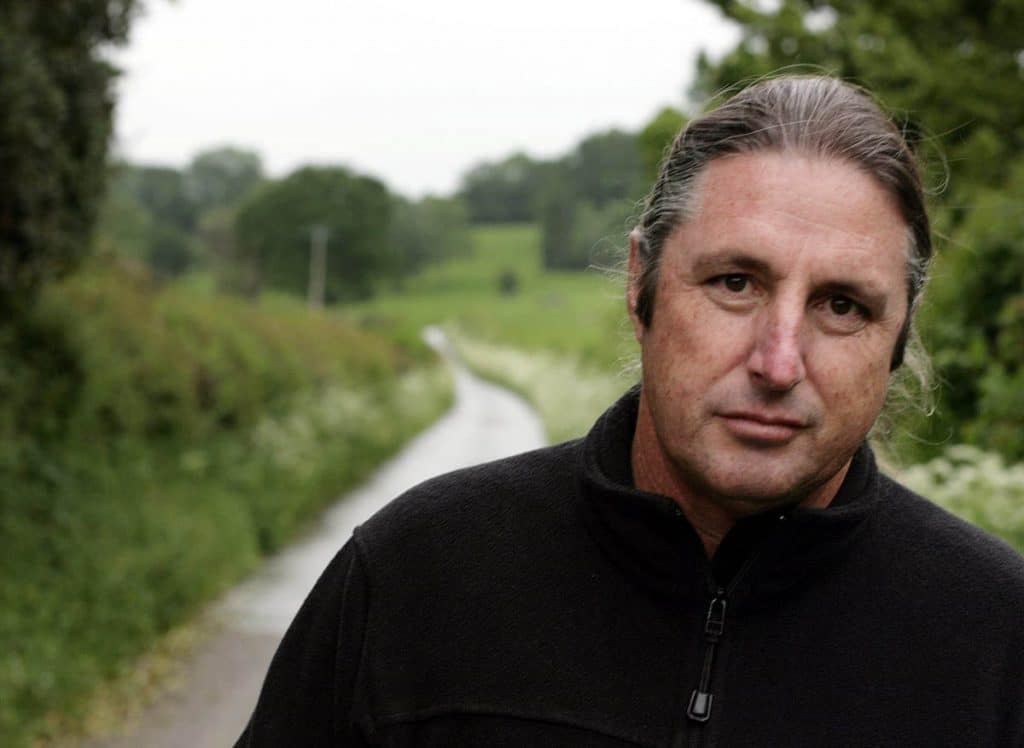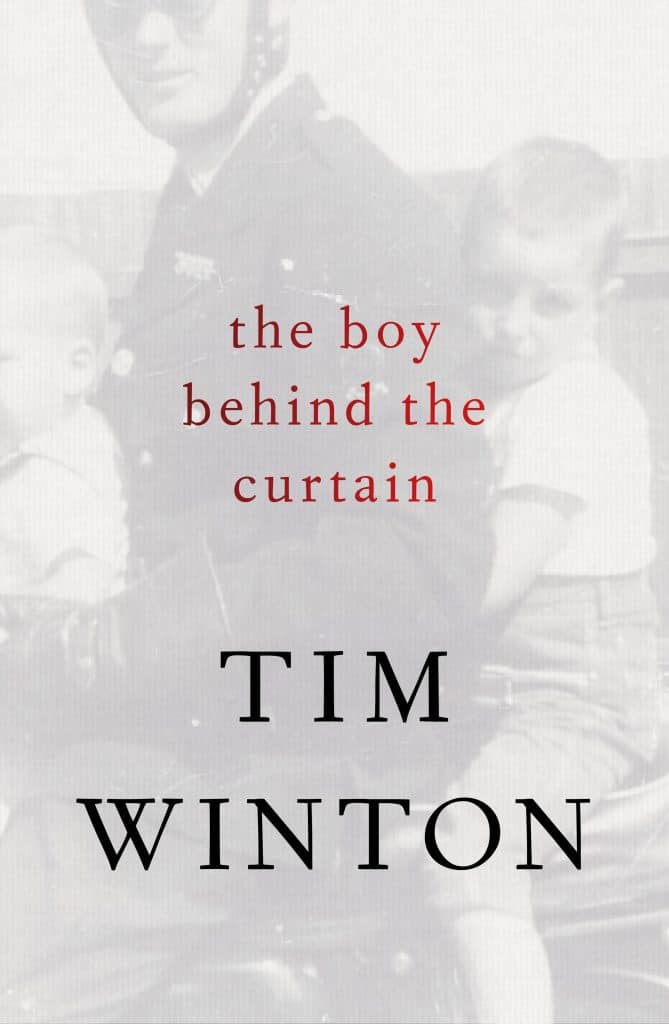The scrim hiding much-loved author Tim Winton is much thinner thanks to this marvellous book of essays, writes Marjorie Lewis-Jones.

By Marjorie Lewis-Jones
14 December 2016
On the opening page of The Boy Behind the Curtain Tim Winton makes a confession. At 13 he would stand behind a Terylene curtain in a fibro house in Campbell Road, Albany, and aim his father’s .22 Lithgow at passers-by.
A lad in his book The Turning does the same thing. Neither of them shoots.
The boy behind the curtain is now a 56-year-old man who has published 28 books and three plays translated into 28 languages. He has won the Miles Franklin Award four times (for Shallows, Cloudstreet, Dirt Music and Breath) and has been shortlisted twice for the Booker Prize (The Riders and Dirt Music).
The scrim hiding him is much thinner these days thanks to this marvellous book of 22 essays that touch on the West Australian policeman’s son’s childhood, youth, university studies and his 35-year career as one of Australia’s most loved and celebrated writers.
Winton is eloquent across a range of topics, including the environment, immigration, films, surfing, tax, guns, sharks and the working poor.
He calls himself an existential Christian but his Christianity is not so esoteric it’s cut free from social conscience.
He names our callousness as a nation for not opening our hearts to asylum seekers. He points to our lack of vision for not adequately safeguarding our waterways and native flora and fauna.
A clever working class boy, the first in his family to go to university, he dares us to ponder where he’d be now if he had not been given free tertiary education under Gough Whitlam’s leadership.
Would his much-loved novels, that have given us such vividly imagined word-scapes of our land and people, even exist?
The essay “Twice on Sundays” reveals much about Winton’s religious trajectory.
He was five when his father was nearly killed by a drunk driver and a stranger came to the family home to bathe and care for him. The man anointed Winton’s father with oil and prayed for his recovery. His parents became Christians and the family regularly attended the Church of Christ.
“We were unaccountably and unreasonably churchy,” Winton writes.
Five decades on he’s tired of talking theology. “I’ve come to learn that matching a perky fundamentalist requires the certainty, the memory and the bladder control of a much younger person. To me the rhetorical detail is no longer paramount.”
He spent his twenties in more progressive church communities and now most of his best friends are refugees from evangelical fundamentalism.
He also admits a fondness for liturgical worship with smells and bells. “The sacrament of The Eucharist has become the central focus, the still point, if you will; I receive it on my knees and cross myself like a papist.”
At 18, after a serious car accident, Winton was determined to become a writer – to build a life on his love of words that was birthed by the Bible in his youth.
So, prangs have shaped his life. God too.
The boy behind the curtain with a gun was a lonely kid in a new suburb eager to defend himself and his family from the outside world. “And just in time, it would seem, before anything irreparable could come of this impulse, I found words,” he writes. “God knows I was a happier, safer boy once I did.”
Winton’s book is revelatory: full of bracing and beautiful writing and some deep and disconcerting truths. Request it as your stocking filler this Christmas and you won’t be disappointed. Bask in its warmth on what its author believes is “the only sacred site in the mind of mainstream Australia – the beach”.
The Boy Behind the Curtain, by Tim Winton (Hamish Hamilton, 2016, $45)
Marjorie Lewis-Jones is an award-winning writer and poet, the Acting Managing Editor of The South Sydney Herald, and runs the literary blog www.abiggerbrighterworld.







